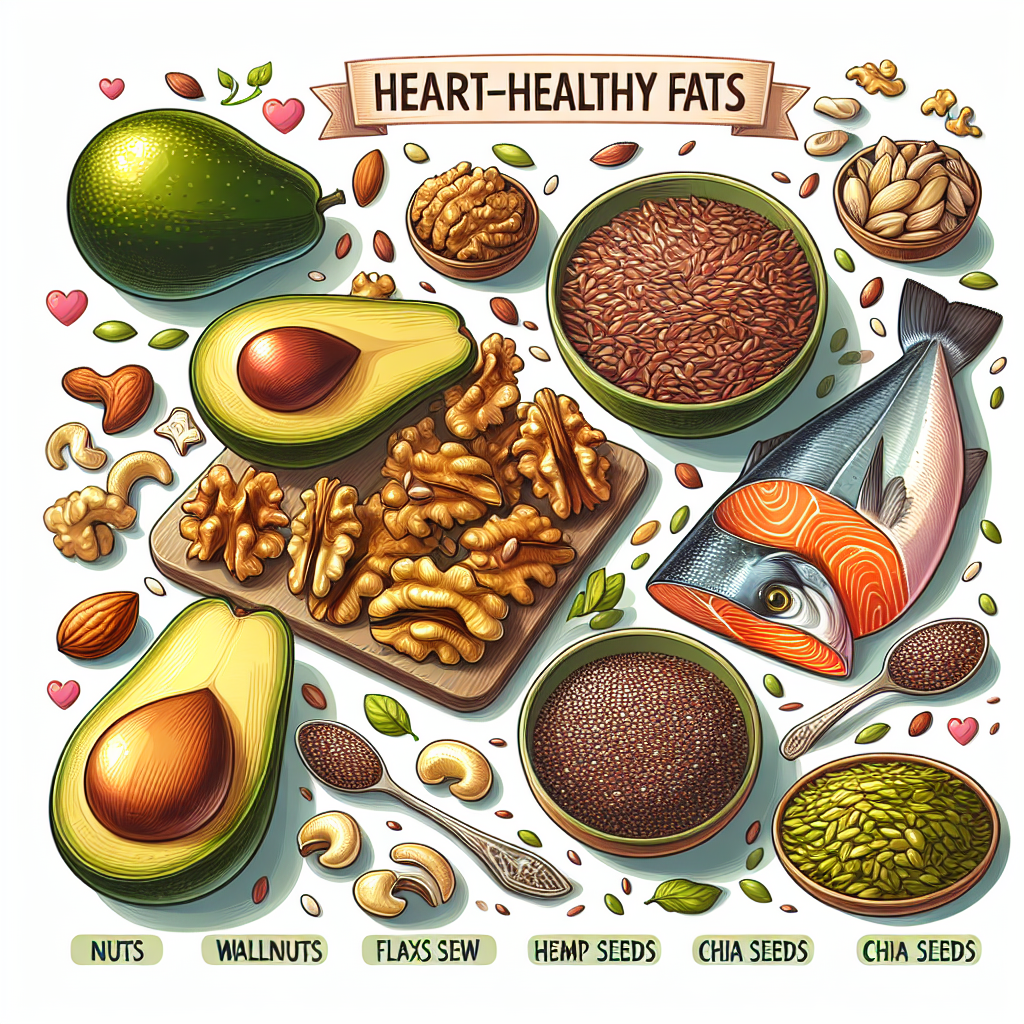In recent years, the narrative around dietary fats and their role in cardiovascular health has shifted significantly. Once villainized, fats are now recognized as a complex group holding both friends and foes regarding heart health. This article aims to dissect the intricate relationship between dietary fats and cardiovascular health, offering insights into how to manage fat intake for optimal heart function.
Understanding Different Types of Dietary Fats
Fats are a diverse group of compounds, and their effects on cardiovascular health can be markedly different. To make informed decisions about fat consumption, it’s essential to understand the various types of fats.
-
Saturated Fats: Typically found in animal products and some plant oils, saturated fats have been linked to increased levels of LDL cholesterol, which is often dubbed as "bad" cholesterol because it can contribute to the buildup of plaque in the arteries.
-
Trans Fats: These are industrially produced fats, often used in processed foods for their ability to enhance flavor and extend shelf life. The consumption of trans fats is associated with a significant increase in the risk of coronary heart disease.
-
Monounsaturated Fats (MUFAs): Abundant in olive oil, nuts, and avocados, MUFAs can help reduce bad LDL cholesterol levels without affecting the good HDL cholesterol.
-
Polyunsaturated Fats (PUFAs): Found in fish, flaxseeds, and walnuts, PUFAs include omega-3 and omega-6 fatty acids. Omega-3s, in particular, have been shown to have a protective effect against heart disease.
The Role of Fats in Cardiovascular Health
Dietary fats play a crucial role in cardiovascular health. While some fats can lead to negative health outcomes, others offer protective benefits that are crucial for maintaining a healthy heart.
The Negative Impacts of Saturated and Trans Fats
Saturated and trans fats can lead to an increase in LDL cholesterol in the bloodstream. Elevated levels of LDL cholesterol can result in the formation of plaque within the arteries, a condition known as atherosclerosis. This plaque buildup can narrow arteries and increase the risk of stroke, heart attack, and other cardiovascular diseases (American Heart Association).
The Protective Effects of MUFAs and PUFAs
Conversely, MUFAs and PUFAs have been linked to a variety of cardiovascular benefits. Omega-3 fatty acids, a type of PUFA, are particularly beneficial. They can help lower blood pressure, reduce triglyceride levels, and decrease the risk of arrhythmias, which can lead to sudden cardiac death. They also have anti-inflammatory properties, which can help to reduce the risk of atherosclerosis (National Institutes of Health).
Integrating Heart-Healthy Fats into Your Diet
To optimize cardiovascular health through diet, it’s crucial to reduce the intake of saturated and trans fats while increasing the consumption of MUFAs and PUFAs.
-
Cooking with Olive Oil: Using olive oil, a rich source of MUFAs, for cooking can be a simple way to improve the fat quality in your diet.
-
Selecting Lean Meats: Opting for lean cuts of meat and trimming any visible fat can reduce saturated fat intake.
-
Incorporating Fatty Fish: Eating fatty fish like salmon or mackerel twice a week can increase your intake of omega-3 PUFAs.
-
Snacking on Nuts and Seeds: Nuts and seeds are excellent sources of healthy fats and can serve as nutritious snacks.
-
Reading Food Labels: Being vigilant about reading food labels can help you avoid products with trans fats, often listed as "partially hydrogenated oils".
For a deeper dive into the specific role of omega-3 fatty acids in cardiovascular health, consider reading the article on Improving Vascular Health Through Targeted Nutrition.
The Broader Context of Cardiovascular Health
While dietary fats are a significant factor, cardiovascular health is multidimensional and influenced by a range of lifestyle choices and health practices. Engaging in regular physical activity, managing stress, and monitoring blood pressure and cholesterol levels are all critical components of heart health. For more comprehensive insights, explore our section on Cardiovascular Health.
Additionally, it is essential to consider the synergistic effects of a well-rounded diet that includes a variety of nutrients. For example, the role of calcium in heart health should not be overlooked. To understand this relationship better, the article on The Role of Calcium in Maintaining Heart Health provides valuable information.
The Importance of Personalized Dietary Recommendations
Individual dietary needs can vary based on genetics, age, health status, and other factors. Therefore, it is important to consult with healthcare professionals to personalize dietary recommendations. A registered dietitian or a physician can help tailor a diet plan that accommodates your specific needs and health goals.
For individuals with specific health conditions, such as chronic illnesses, tailored advice is even more crucial. The article on Heart Health Maintenance for Patients with Chronic Illnesses offers targeted advice for such populations.
External Resources for Further Reading
For those looking to expand their knowledge on the topic, there are several niche and specific resources available:
- Harvard School of Public Health: Offers a detailed breakdown of different types of fats and their effects on health.
- National Heart, Lung, and Blood Institute: Provides guidelines on how to balance calorie intake with energy expenditure, including the role of dietary fats.
- American College of Cardiology: Features an article discussing the latest research on dietary fats and cardiovascular risk.
In conclusion, understanding the diverse roles of dietary fats is essential for managing cardiovascular health. By making informed choices about the types of fats consumed and considering the broader context of a healthy lifestyle, individuals can significantly impact their heart health.



